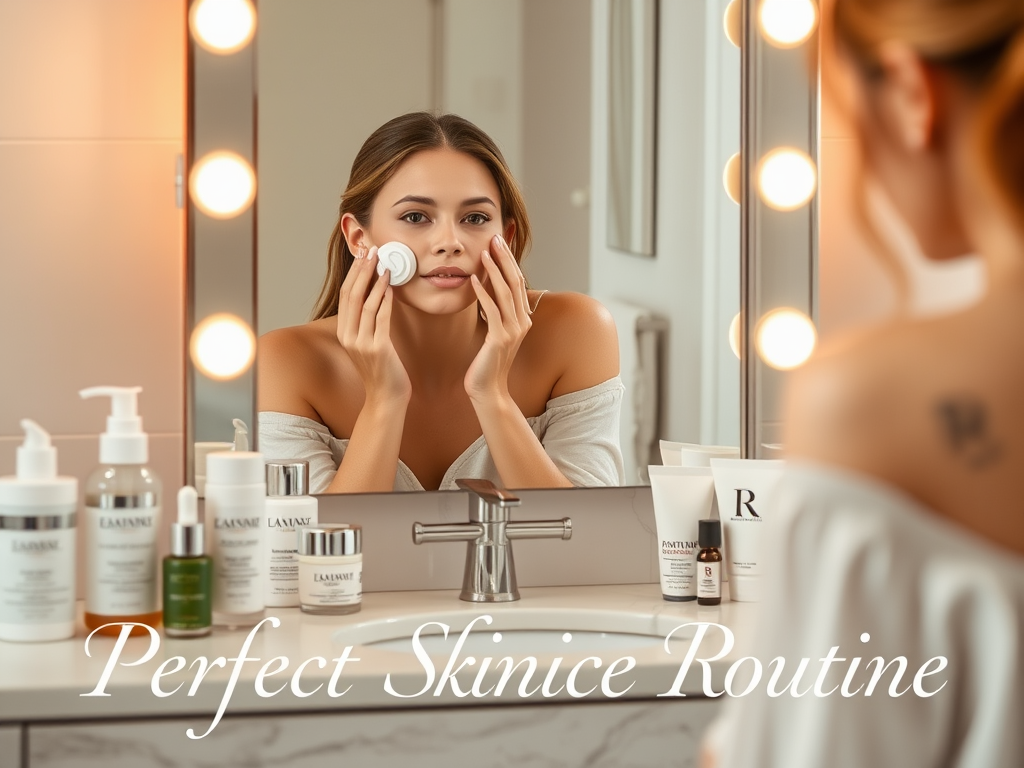Are you tired of spending countless hours and dollars on skincare products that don’t seem to work? 🤔 You’re not alone. Many of us struggle to find the perfect skincare routine that actually delivers results. But what if we told you that achieving radiant, healthy skin is possible with just five simple steps?
Imagine waking up every morning to a glowing complexion that makes you feel confident and ready to take on the world. 🌟 No more hiding behind layers of makeup or feeling self-conscious about your skin. It’s time to say goodbye to confusion and hello to a tailored skincare routine that works for you.
In this blog post, we’ll guide you through the essential steps to build your perfect skincare routine. From understanding your unique skin type to protecting your skin from environmental stressors, we’ve got you covered. Get ready to transform your skincare game and unlock the secret to beautiful, healthy skin!
Understand Your Skin Type
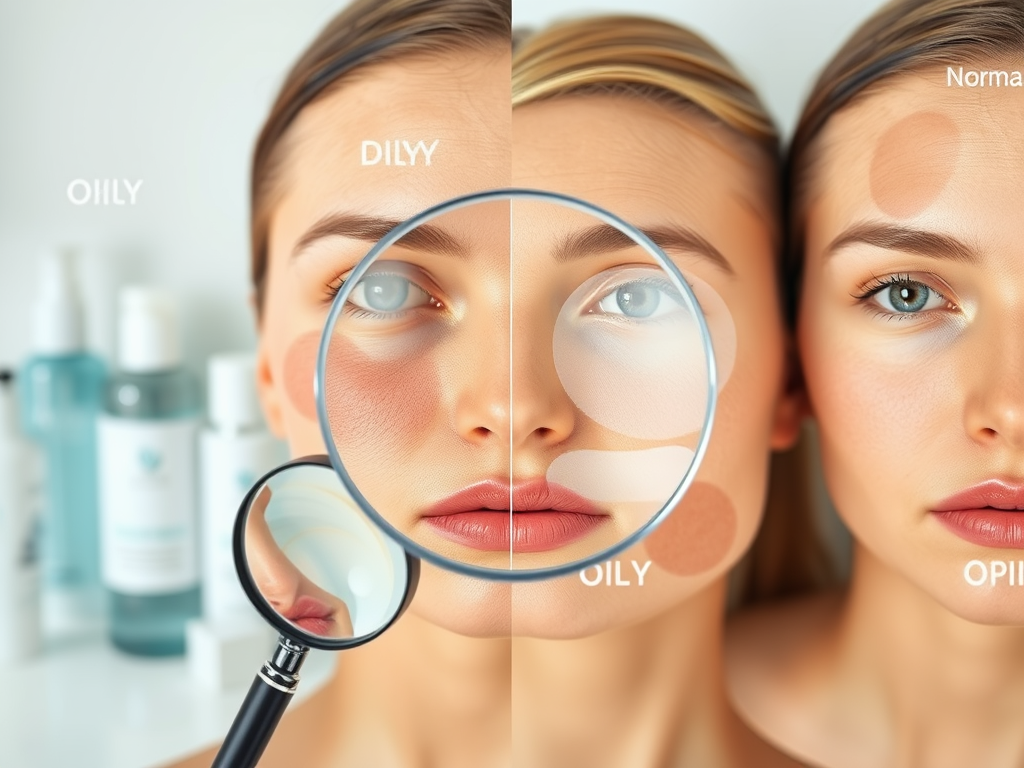
A. Identify common skin types
Understanding the different skin types is crucial for building an effective skincare routine. Here are the most common skin types:
- Normal skin
- Oily skin
- Dry skin
- Combination skin
- Sensitive skin
| Skin Type | Characteristics | Common Concerns |
|---|---|---|
| Normal | Balanced, smooth texture | Few imperfections, minimal sensitivity |
| Oily | Shiny, enlarged pores | Acne, blackheads, excess sebum |
| Dry | Rough, flaky, tight | Fine lines, dullness, itchiness |
| Combination | Oily T-zone, dry cheeks | Uneven texture, mixed concerns |
| Sensitive | Easily irritated, reactive | Redness, inflammation, stinging |
B. Learn how to determine your skin type
To identify your skin type, try these simple methods:
- Bare-faced method: Cleanse your face and wait an hour without applying products.
- Blotting sheet test: Press a blotting paper on different areas of your face.
- Observe daily patterns: Note how your skin behaves throughout the day.
C. Recognize specific skin concerns
Beyond skin types, it’s essential to identify specific concerns:
- Acne and breakouts
- Hyperpigmentation
- Fine lines and wrinkles
- Enlarged pores
- Dehydration
By understanding your skin type and concerns, you can tailor your skincare routine to address your unique needs effectively. This knowledge will guide you in selecting appropriate products and treatments, ensuring optimal results for your skin’s health and appearance.
Cleanse for a Fresh Start
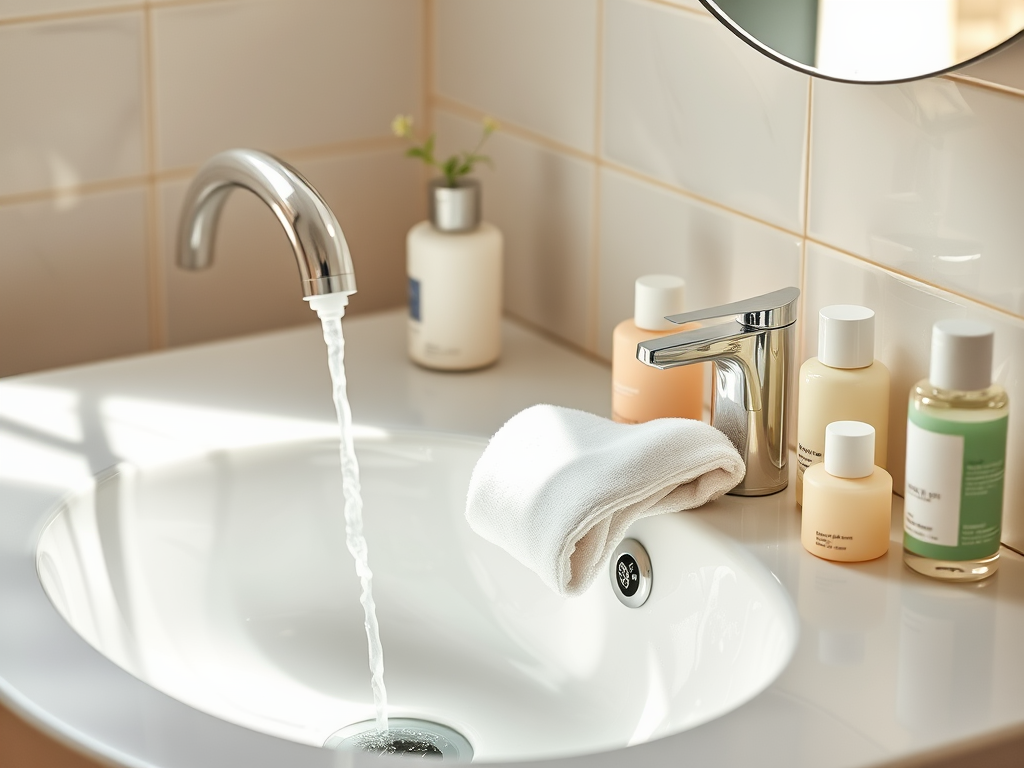
Choose the right cleanser for your skin type
Selecting the appropriate cleanser is crucial for maintaining healthy skin. Different skin types require specific formulations to effectively remove impurities without causing irritation or dryness. Here’s a quick guide to help you choose:
| Skin Type | Recommended Cleanser Type | Key Ingredients |
|---|---|---|
| Oily | Gel or foaming | Salicylic acid, tea tree oil |
| Dry | Cream or lotion | Hyaluronic acid, ceramides |
| Sensitive | Micellar water or milk | Aloe vera, chamomile |
| Combination | Balanced pH formula | Glycerin, niacinamide |
Master proper cleansing techniques
To maximize the benefits of your chosen cleanser, follow these steps:
- Wet your face with lukewarm water
- Apply a small amount of cleanser to your fingertips
- Gently massage in circular motions for 30-60 seconds
- Pay extra attention to areas prone to congestion (T-zone, chin)
- Rinse thoroughly with cool water
- Pat dry with a clean, soft towel
Determine optimal cleansing frequency
The ideal cleansing frequency depends on your skin type and lifestyle:
- Normal to dry skin: Once daily, preferably in the evening
- Oily or acne-prone skin: Twice daily, morning and evening
- Sensitive skin: Once daily or every other day, using gentle techniques
Remember to adjust your cleansing routine based on factors like exercise, makeup use, and environmental exposure. With the right cleanser and technique, you’ll create a clean canvas for the next steps in your skincare routine.
Treat Targeted Concerns
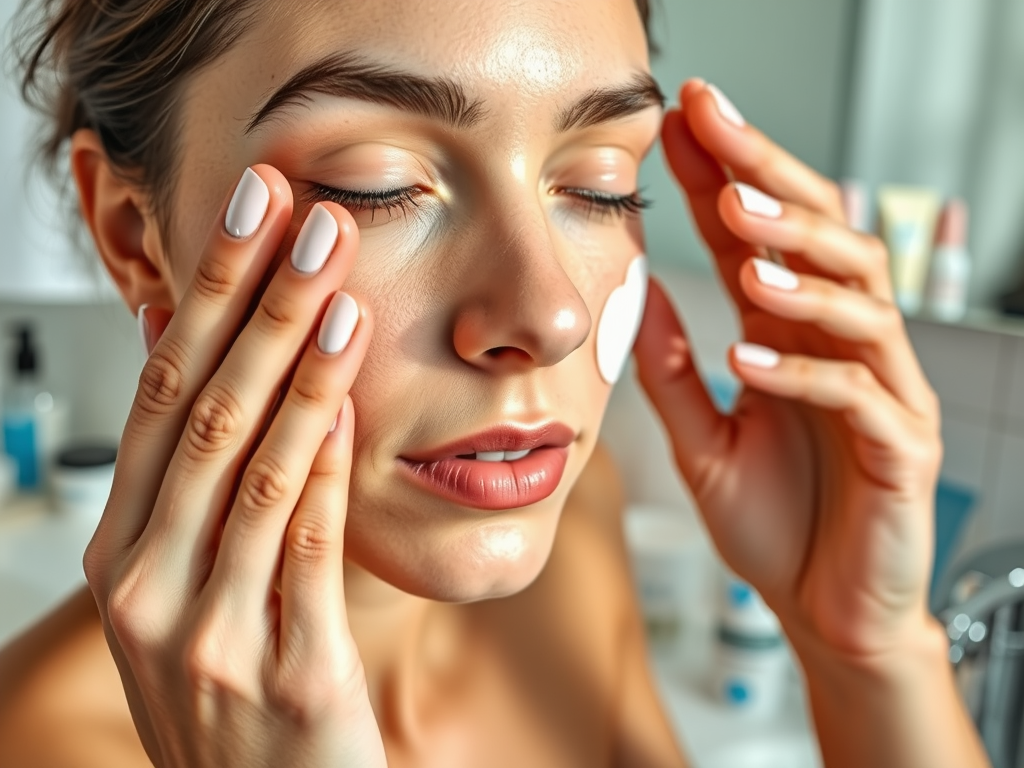
Identify effective active ingredients
When treating targeted skin concerns, it’s crucial to understand the power of active ingredients. These potent substances can make a significant difference in addressing specific skin issues. Here’s a quick overview of some effective active ingredients and their benefits:
| Active Ingredient | Benefits | Best for |
|---|---|---|
| Retinol | Promotes cell turnover, reduces fine lines | Aging skin, acne |
| Vitamin C | Brightens skin, boosts collagen production | Dull skin, hyperpigmentation |
| Hyaluronic Acid | Hydrates and plumps skin | Dry, dehydrated skin |
| Salicylic Acid | Unclogs pores, exfoliates | Acne-prone skin |
| Niacinamide | Reduces inflammation, regulates oil production | Sensitive, oily skin |
Incorporate serums and treatments
Once you’ve identified the right active ingredients for your skin concerns, it’s time to incorporate them into your routine. Serums and treatments are concentrated formulations that deliver these powerful ingredients directly to your skin. Here are some tips for effective incorporation:
- Start with a low concentration and gradually increase
- Apply serums after cleansing but before moisturizing
- Use different treatments for morning and night routines
- Allow each product to absorb before applying the next
Address specific skin issues
Targeting your unique skin concerns is the key to a successful skincare routine. Whether you’re dealing with acne, aging, or hyperpigmentation, a tailored approach can yield the best results. Consider these strategies for common skin issues:
- For acne: Use a combination of salicylic acid and benzoyl peroxide
- For aging: Incorporate retinol and peptides into your nighttime routine
- For hyperpigmentation: Apply vitamin C serum in the morning and use chemical exfoliants
Remember, consistency is key when treating targeted concerns. Give your chosen products time to work, typically 4-6 weeks, before expecting visible results.
Hydrate and Nourish
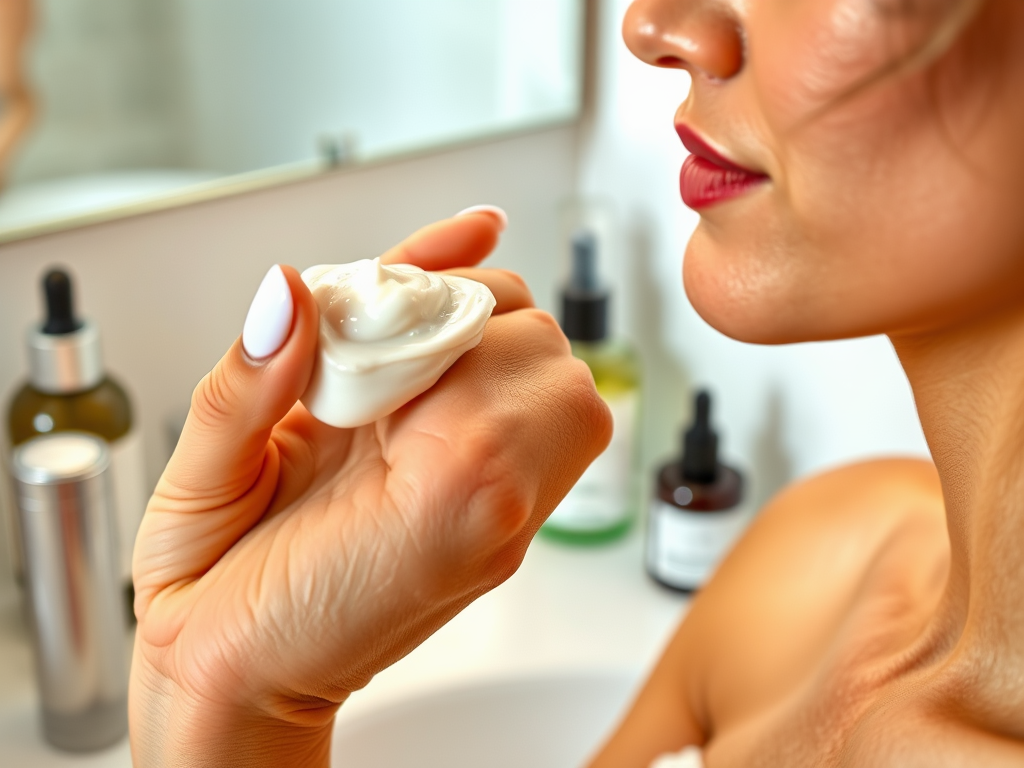
Select appropriate moisturizers
Choosing the right moisturizer is crucial for maintaining healthy, hydrated skin. Consider the following factors when selecting a moisturizer:
- Skin type
- Specific skin concerns
- Ingredients
- Texture
- Time of application (day or night)
| Skin Type | Recommended Moisturizer Type |
|---|---|
| Oily | Lightweight, oil-free, gel-based |
| Dry | Rich, creamy, with hydrating ingredients |
| Combination | Lightweight for T-zone, richer for dry areas |
| Sensitive | Fragrance-free, hypoallergenic |
Understand the importance of hydration
Proper hydration is essential for:
- Maintaining skin elasticity
- Preventing premature aging
- Supporting skin barrier function
- Balancing oil production
- Enhancing skin’s natural repair processes
Learn proper application techniques
To maximize the benefits of your moisturizer:
- Apply to slightly damp skin
- Use gentle, upward motions
- Don’t forget often-neglected areas like the neck and décolletage
- Allow the product to absorb before applying makeup
Consider additional hydrating products
Enhance your moisturizing routine with:
- Hydrating serums (e.g., hyaluronic acid)
- Face oils for extra nourishment
- Overnight masks for intense hydration
- Facial mists for on-the-go moisture
Now that you’ve learned how to hydrate and nourish your skin effectively, let’s move on to the final step in building your perfect skincare routine: protecting your skin from environmental damage.
Protect Your Skin
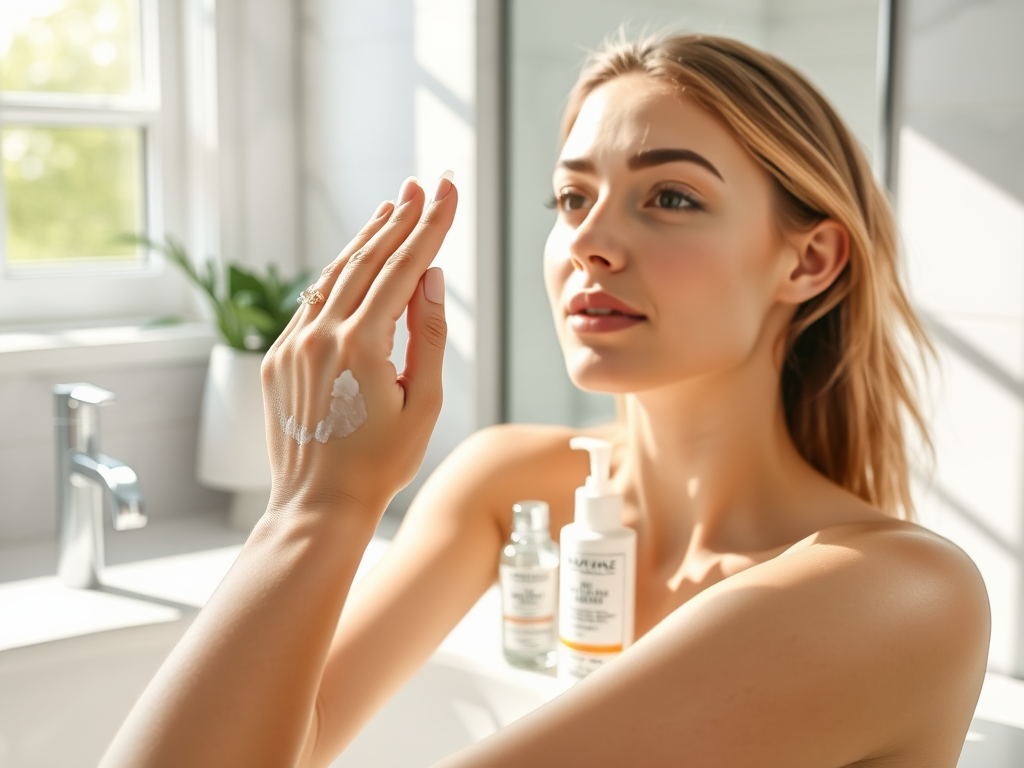
Choose the right sunscreen
Selecting the appropriate sunscreen is crucial for effective skin protection. Consider these factors:
- SPF level: Choose at least SPF 30 for daily use
- Broad-spectrum protection: Look for UVA and UVB coverage
- Skin type: Select formulations suitable for your skin (e.g., oil-free for acne-prone skin)
- Activities: Water-resistant options for swimming or sweating
| Skin Type | Recommended Sunscreen Type |
|---|---|
| Oily | Gel-based, oil-free |
| Dry | Cream or lotion |
| Sensitive | Mineral-based (zinc oxide) |
| Acne-prone | Non-comedogenic |
Apply sunscreen correctly
Proper application ensures maximum protection:
- Apply 15-30 minutes before sun exposure
- Use about 1 oz (30 ml) for full-body coverage
- Don’t forget often-missed areas: ears, neck, back of hands
- Reapply every 2 hours or after swimming/sweating
Incorporate additional protective measures
Sunscreen alone isn’t enough. Enhance your skin’s defense with:
- Protective clothing (wide-brimmed hats, long sleeves)
- UV-blocking sunglasses
- Seeking shade during peak sun hours (10 am – 4 pm)
Maintain consistent sun protection habits
Consistency is key for long-term skin health:
- Make sunscreen application a daily habit, regardless of weather
- Keep travel-sized sunscreen in your bag for on-the-go protection
- Set reminders to reapply throughout the day
- Educate family and friends about the importance of sun protection
By following these guidelines, you’ll effectively shield your skin from harmful UV rays, preventing premature aging and reducing skin cancer risk. Remember, protecting your skin is a year-round commitment, not just for beach days or summer months.
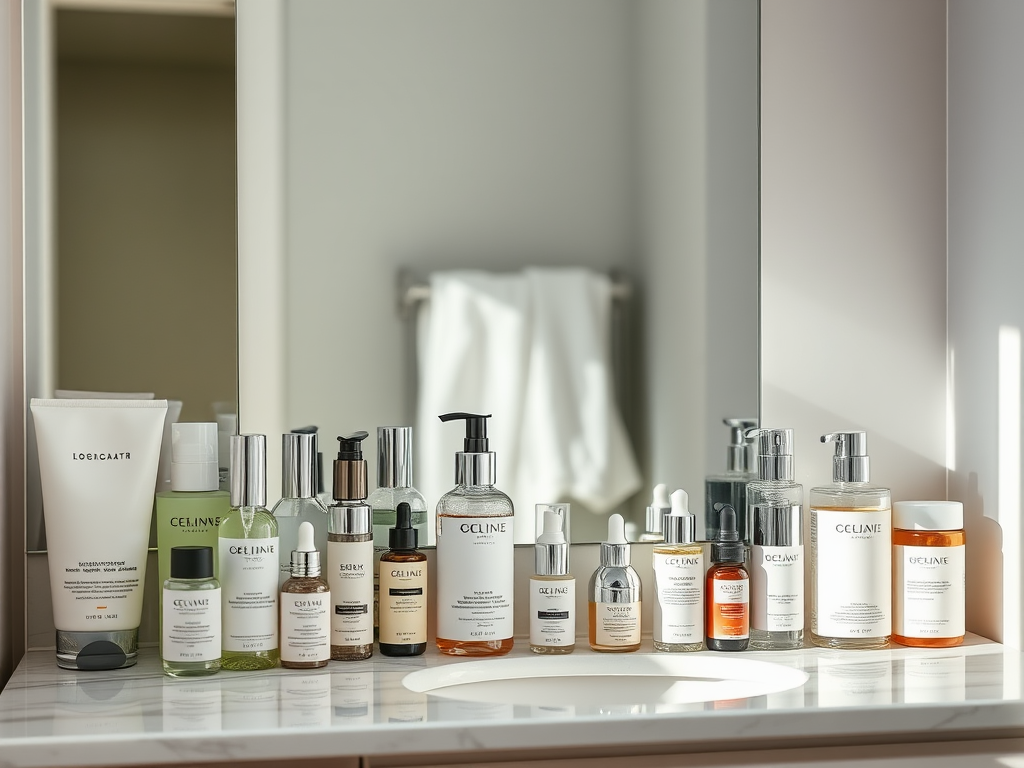
Creating a personalized skincare routine is a journey of self-discovery and care. By following these five steps – understanding your skin type, cleansing effectively, treating specific concerns, hydrating properly, and protecting your skin – you can build a regimen that addresses your unique needs and helps you achieve your skincare goals.
Remember, consistency is key when it comes to skincare. Be patient and give your new routine time to work. As you embark on this skincare journey, listen to your skin and be willing to adjust your routine as needed. With dedication and the right approach, you’ll be well on your way to healthier, more radiant skin that makes you feel confident and beautiful every day.
